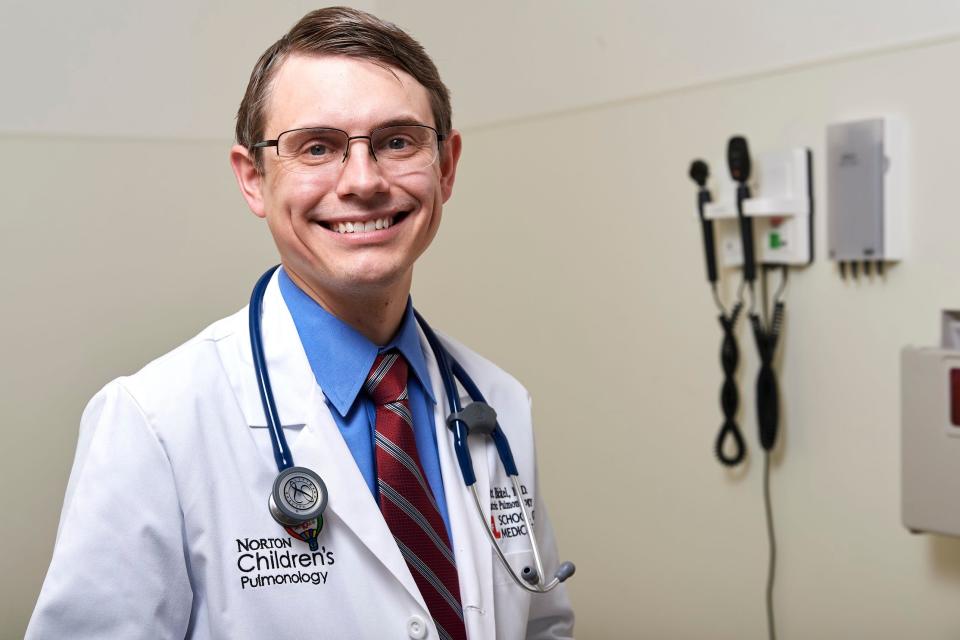Louisville parents, beware: RSV hospitalizations for children spiking early this year
Norton Children's Hospital has hospitalized 66 patients with respiratory syncytial virus (or RSV) this week, double the total of 32 this time last year, it reported Friday.
That means Louisville kids could be in for a higher than average winter for RSV and other cold-like viruses, said Dr. Scott Bickel, a pulmonologist at Norton Children’s, who said there is also an increase in rhinovirus and enterovirus.
"It's hard to say exactly what will transpire during the winter," Bickel said. "But ... certainly seeing these viruses circulating early indicate that we could see higher rates" moving forward.
Most of the patients are under are under 2 years old, he said, although there is a "smaller number" of kids who are older and have asthma.
More:RSV: What are the symptoms and when should you seek care?
By age 2, most children will have contracted RSV, and the majority won't have complications, Bickel said. But in rare cases, patients can experience inflammation or mucus buildup in the airways, which could lower oxygen levels and perhaps lead to death.
"Any child who is under 6 months old is at higher risk and especially children who might have been born prematurely or who have other health issues such as cardiac disease, history of heart disease, children who maybe have asthma, those would be the people who are at most risk for more serious illness," he said.

From 2021Out of isolation: RSV and croup cases spike among Louisville children
The reason for the increase, Bickel said, is not exactly clear, but he noted "we've just gotten back into school within the past month. Kids are in daycare. And so, certainly, all that contact does tend to lead towards spikes and viral illnesses."
RSV is "a common respiratory virus that usually causes mild, cold-like symptoms," according to the Centers for Disease Control and Prevention. RSV symptoms may include nasal drainage, congestion, wheezing, labored breathing, fever and dehydration.
Most people who get it bounce back in no more than two weeks, the CDC says, but it can be serious, causing bronchitis and pneumonia. Older adults and young children are most likely to have serious complications if they get RSV. Norton researchers have also set out to find the best way to diagnose RSV in adults. Early results of that research in April showed saliva is the best indicator, meaning it may be possible to diagnosing the virus in a noninvasive way.
Last year, Louisville saw a huge bump in RSV cases among children after a year of COVID-19 isolation that resulted in weaker immune systems.
More on RSVNot just for kids: Norton researchers working to learn more about dangers of RSV in adults
Similar to COVID-19 prevention, the CDC says people can prevent RSV by covering coughs and sneezes, washing hands regularly and for 20 seconds or more, avoiding close contact like kissing with others and by cleaning things like doorknobs that people touch regularly.
Bickel said people should get their flu shots, and if they're supposed to be on asthma medication, to make sure they keep that filled and stay in touch with their doctor. Additionally, parents should be on the lookout for cold-like symptoms in their kids, especially things like labored breathing, blueness around the lips or fingers, or dehydration evidenced through dry mouth or crying without producing tears.
This story may be updated.
Reach health reporter Sarah Ladd at sladd@courier-journal.com. Follow her on Twitter at @ladd_sarah.
This article originally appeared on Louisville Courier Journal: Norton Hospital: RSV cases in kids spiking early in Louisville

